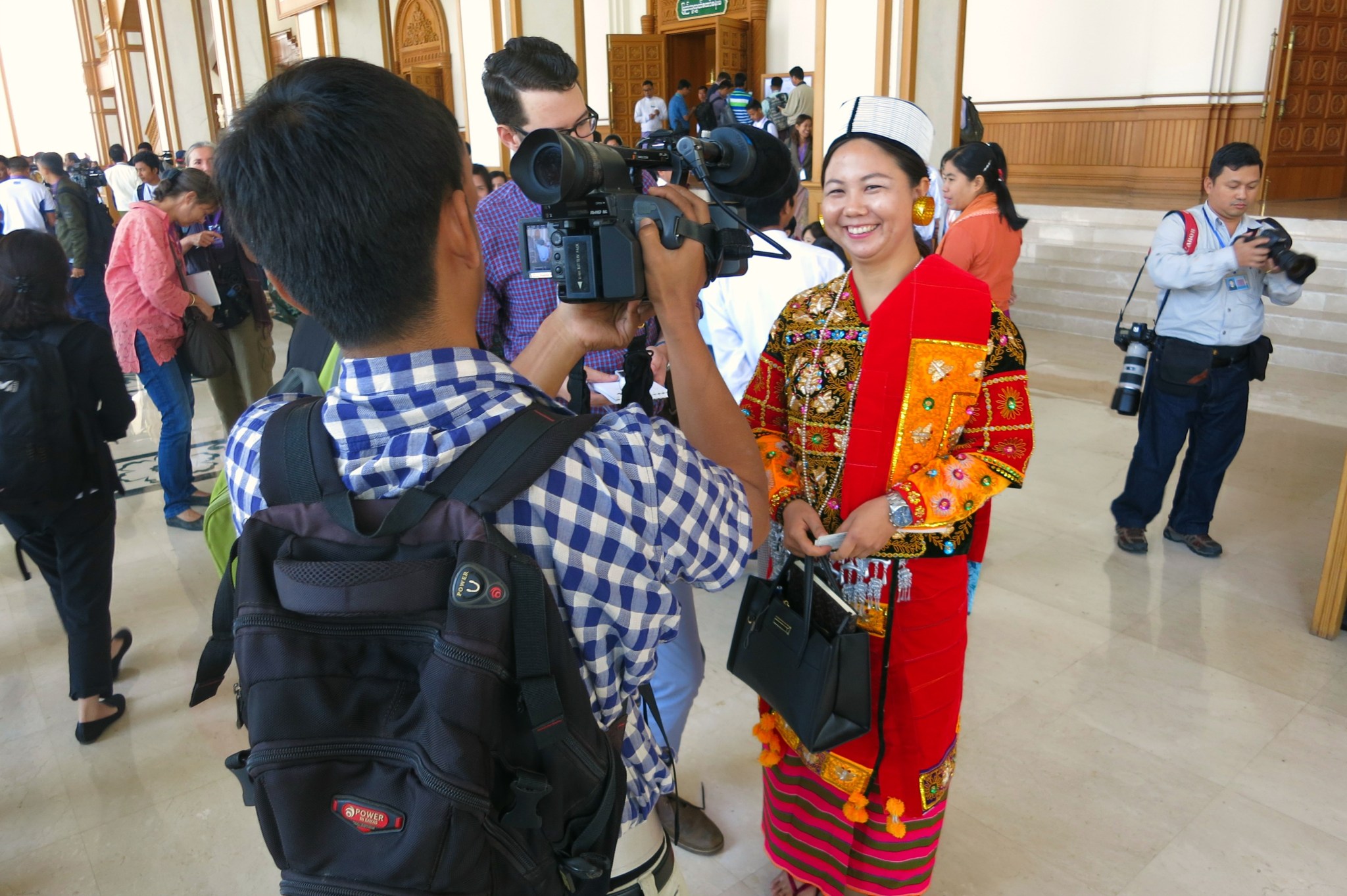As Burma Convenes its Democratically Elected Parliament, Significant Challenges Remain

Today Burma embarks on a new chapter in its transition, as a newly elected parliament convenes just months after what has been widely viewed as the most credible election in generations.
The opposition’s resounding victory has been accepted by the ruling establishment, and the swearing in of hundreds of new MPs is a historic moment, unthinkable just a few short years ago.
As this dramatic turnover transpires in the halls of parliaments in Naypyidaw and the state and regional capitals, it is important to remember that the same challenges that Burma faced before the election persist, there are now just new people dealing with them. And to be sure, the overwhelming victory for Aung San Suu Kyi and the National League for Democracy (NLD) will bring about a new set of challenges – all of which can be overcome with dedication, resourcefulness, and most importantly, patience.
On a practical level, a key issue for the new parliament is experience, or lack thereof. Burma’s new parliament arrives with an overwhelming mandate from the electorate, but with 87 percent of elected MPs new to the job, very few of the new legislators have experience in critical administrative or policy functions like budgeting, foreign affairs, and perhaps most important, negotiating peace with the armed ethnic groups. While this could be an issue in any constituency in any country, the magnitude of the turnover in Burma’s legislatures means the parliament’s mandate for change is accompanied by a significant loss of institutional knowledge. The new parliament will need to move swiftly on key reform issues or risk public discontent with its performance, a pitfall faced by many a young democracy.
The lack of pluralism in the national parliament is also a concern. While largely believed to be significant power brokers in the next parliament, ethnic parties fared poorly in the election, garnering approximately 11 percent of electable seats. On the national level, only major ethnic parties from Shan and Rakhine states will have a notable presence in parliament, with participation from other ethnic parties ranging from microscopic to nonexistent. This has renewed calls to move toward a proportional representation system, or at the very least, the implementation of some special measures that guarantee minority representation. Struggles with pluralism have dogged Burma since before independence and will be not going away in the near future; ensuring inclusivity will be a central part of all discussions going forward on the peace process, natural resource management, future elections and a myriad of other issues that impact Burma’s ethnically diverse population. As it moves to address these issues legislatively, the new parliament must bear in mind that the laws and regulations it adopts now will likely influence political competition for decades.
The other defining issue is the role of the military, which, under the 2008 constitution, still wields considerable power. The commander-in-chief of the military controls three influential cabinet positions – defense, home affairs and border affairs – and the military appoints one vice president, 25 percent of the seats in both houses of the national parliament and 30 percent of the seats in state and regional legislatures. The constitution also stipulates that a 75 percent supermajority is needed to pass constitutional amendments, giving the military effective veto power over any changes. Burma’s newly elected leaders will not control the army, courts, or immigration departments. Aung San Suu Kyi’s ability to continue discussions and collaboration with military leaders will be an important indicator of how the country’s political and economic transition will proceed under the new government. In the months since the election, she has met with outgoing President Thein Sein and Commander-in-Chief Min Aung Hlaing who have promised to honor a peaceful transfer of power.
For that, we are all thankful. Peaceful transfers of power are critical to the democratic process. However, it is important to remember that the 2015 Election was just one step –a significant one, to be sure – but there are many decisions still to be made and stakeholders that are not yet at the table. The struggle for a peaceful, inclusive, democratic Burma is not over. In the coming years, IRI will support efforts to bring all stakeholders to the table and help Burma find peaceful, political solutions to problems that have traditionally been handled with violence.
Congratulations to Burma’s new parliamentarians! We look forward to working with you on these challenges in the coming years.
Top